Digital Advisory Services for Agriculture
Delivering Actionable Advice to Farmers in Low- and Middle-Income Countries at Scale
AIM for Scale’s second Innovation Package centers on expanding access to and enhancing the quality of digital advisory services for agriculture, ensuring that millions of farmers receive timely, tailored, and actionable information—from weather forecasts and pest alerts to input recommendations and real time market prices. By improving the quality and accessibility of these services, farmers can make better-informed decisions on when to plant, what inputs to use, and how to manage risks, supporting strengthened livelihoods.
why digital advisory services for agriculture?
Evidence of Impact
Digitally delivered advisory services have demonstrated significant impacts across diverse contexts. In Ghana and Pakistan, randomized evaluations of SMS-based weather forecasts showed improvements in farmers’ planting decisions. In India, forecasts helped farmers make better choices about land use and input application. In Benin, a five-year study found that farmers receiving SMS-based weather forecasts gained between US$104 and US$356 annually, underscoring the transformative potential of these tools. Pest advisories have also proved effective: programs in Kenya, India, Ecuador, and Bangladesh improved farmer practices and raised yields. Text messages with soil information have been shown to increase uptake of recommended inputs, with a marginal benefit-cost ratio of 46:1. Beyond advisory content, tools have also made it easier for farmers to access high-quality inputs, find trustworthy services (e.g., veterinary services), get help from extension agents, and connect sellers and buyers—further strengthening livelihoods and resilience.
Cost-effectiveness
Evidence consistently shows that digital advisory services deliver very high returns on investment. In Benin, the cost of providing SMS-based weather forecasts was under US$0.10 per farmer over five years, yet yielded annual benefits exceeding US$100 per farmer. Soil information messages in India were found to have a marginal benefit-cost ratio of 46:1. Across a range of studies, benefits of transmitting agricultural information are estimated to outweigh costs by at least an order of magnitude.
Credible Pathway to Scale
There is strong evidence that digital advisory services can scale effectively across countries and advisory types. Evaluations demonstrate effectiveness in Africa, South Asia, and Latin America, covering weather forecasts, pest advisories, soil testing information, and input recommendations.1 Importantly, success has not depended on advanced smartphones or connectivity: even basic SMS and interactive voice response systems have proven effective. These services can also be integrated with complementary systems, such as digital input marketplaces or extension platforms, further increasing their value and sustainability. The adaptability of content and delivery mechanisms makes digital advisory services highly scalable across different agricultural, social, and infrastructural contexts.
- Refer to, for example, Cole & Fernando (2016), Fabregas et al. (2019), Casaburi et al. (2019).
Demand from Governments
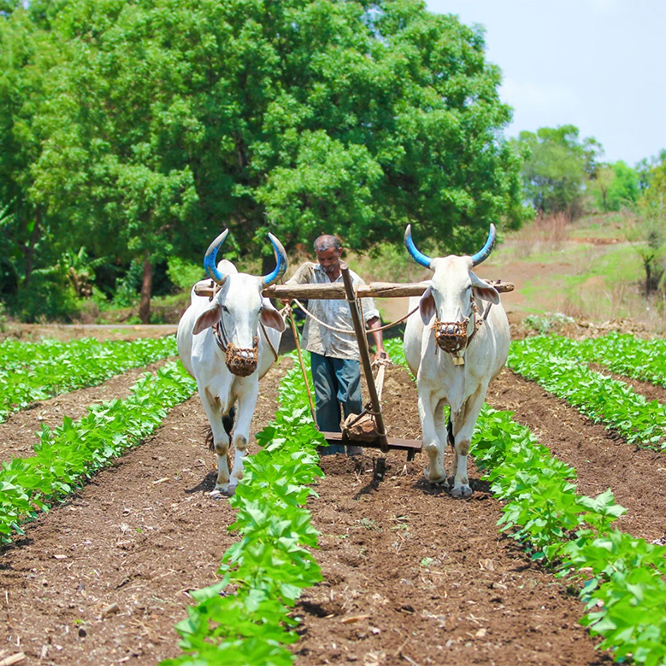
How Do We Plan To Reach Millions Of Farmers?
Despite decades of innovation in agricultural extension, the vast majority of small-scale farmers in low- and middle-income countries still lack access to timely, science-based advice tailored to their needs.
To close this gap and reach millions with trusted, actionable information, we need:
- Foundational public investment to support systems that make digital advisory services affordable, inclusive, and scalable.
- Smarter multi-channel delivery models — ranging from mobile phones, call centers, and community radio to sophisticated AI-powered on demand-digital platforms—that reach farmers where they are, regardless of connectivity or literacy.
- High-quality, integrated content systems that combine diverse data—from soil and weather to pests and prices—and translate it into validated, localized, and actionable recommendations farmers can trust and use.
- Behaviorally-informed design to ensure that advice is understandable, relevant, and actually used.
- A global learning agenda to rapidly adapt what works and build the evidence base for high-impact digital advisory at scale.
The AIM for Scale Technical Panel on Digital Advisory Services for Agriculture, in collaboration with the Secretariat, has developed a blueprint for coordinated action to bridge these gaps.
What’s Included In The Innovation Package?
Our work is grounded in four core premises: (1) access to accurate agricultural information and the ability to act on it are essential for farmers; (2) the quality of information is vital, and it can be improved through significant local input and advanced techniques, such as AI; (3) the delivery method and messaging of information significantly affects how farmers respond to it; and (4) while successful examples of digital advisory services exist, there is substantial fragmentation and a need to consolidate efforts, reach new farmers, and improve the quality of information delivered.

Strengthen foundational systems and delivery channels to reach farmers at scale, with a focus on inclusivity and equity.
KEY ACTIVITIES
- Conduct country-level assessments to identify delivery pathways, including farmer registries and databases.
- Expand or repurpose farmer registries and integrate multiple delivery channels (SMS, interactive voice response, radio, call centers).
- Explore partnering with private sector (e.g., telecoms, agribusiness) to extend coverage and reduce barriers to access.
- Ensure delivery systems address gender, literacy, and smartphone access gaps.
TARGET OUTPUTS
- At least 10 countries with improved delivery systems (registries, databases, multi-channel outreach) by 2028.
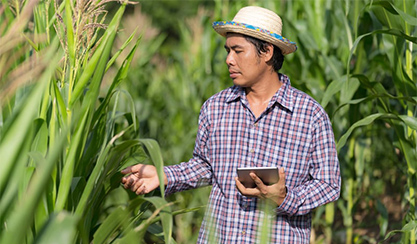
Build interoperable, scalable digital public infrastructure (DPI) that underpins effective advisory systems.
KEY ACTIVITIES
- Map existing tools and platforms; identify gaps and priority use cases.
- Invest in interoperable DPI “building blocks” (farmer registries, data exchange layers, advisory delivery engines).
- Establish data-sharing standards, protocols, and sovereignty safeguards.
- Broker technical assistance, training, and knowledge exchange between countries.
TARGET OUTPUTS
- At least 10 countries developing or enhancing DPI for agriculture by 2028.
- By 2028, establish partnerships to develop software “building blocks” for DPI, if there is sufficient country demand.

Ensure accurate, timely, and actionable agricultural recommendations through validated and locally adapted content.
KEY ACTIVITIES
- Consolidate and digitize national/regional agricultural datasets (weather, soil, pest, prices).
- Tailor and validate recommendations using local ground-truthing and AI-enabled tools.
- Integrate static content (e.g., soil tests) with dynamic forecasts for actionable advice.
- Build quality control and data validation systems for ongoing content improvement.
TARGET OUTPUTS
- At least 10 countries with systems consolidating and validating agricultural advisories with the goal of making them more usable and relevant for farmers (e.g., weather and soil chemistry data) by 2028.
- Up to five countries exploring AI tools to generate targeted recommendations (e.g., combining static and dynamic information) for farmers by 2028.
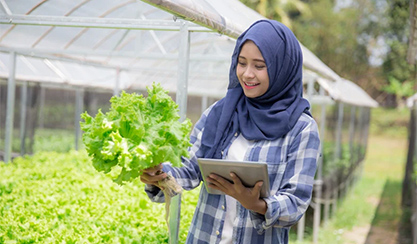
Design services that farmers trust, understand, and act on, using behavioral science and learning-by-doing approaches.
KEY ACTIVITIES
- Support countries in adopting iterative testing (A/B tests, feedback loops, adaptive design).
- Blend digital tools with human interaction (extension agents, social networks).
- Build systems for structured farmer feedback (surveys, hotlines, helpdesks).
- Develop validation systems for farmers and extension agents to rate advisory content.
TARGET OUTPUTS
- At least three countries setting up project management units to design and execute rapid testing protocols, and build local capacity by 2026.
- At least 10 countries implementing learning-by-doing models to optimize the design and delivery of user-centered advisory services by 2028.

Anchor advisory services in institutions and systems that can evolve, adapt, and sustain impact over time.
- Explore public-private partnership models for long-term service provision (build-operate-transfer, bundled services).
- Establish a global community of practice to share lessons and promote standards.
- Generate evidence on scalability and emerging innovations (e.g., LLMs, remote sensing, crowdsourced data).
- Organize training, exchanges, and partnerships to build institutional capacity.
Priority Countries for the Digital Advisory Services for Agriculture Innovation Package
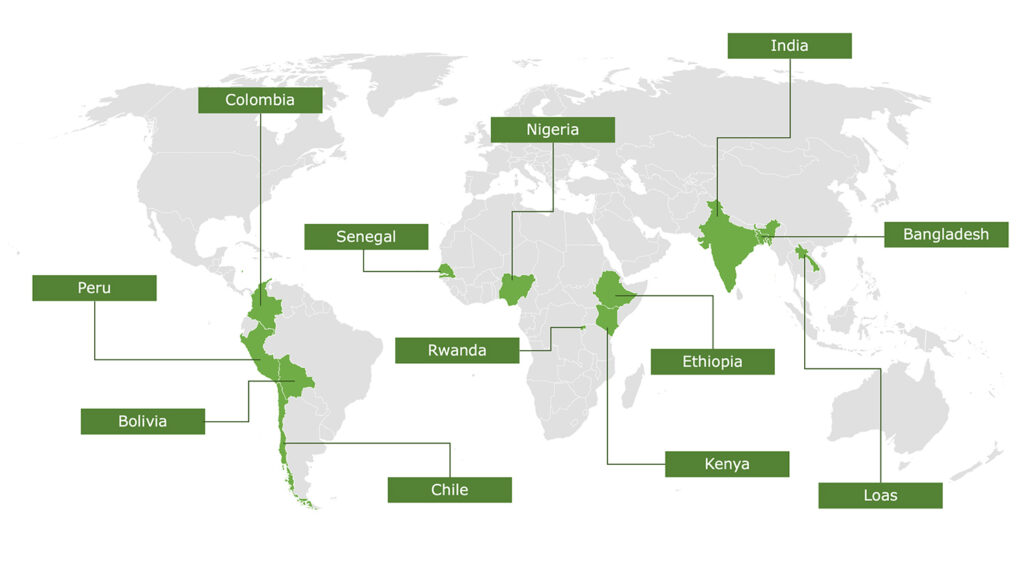
Digital Advisory Services for Agriculture Innovation Package News and Analysis
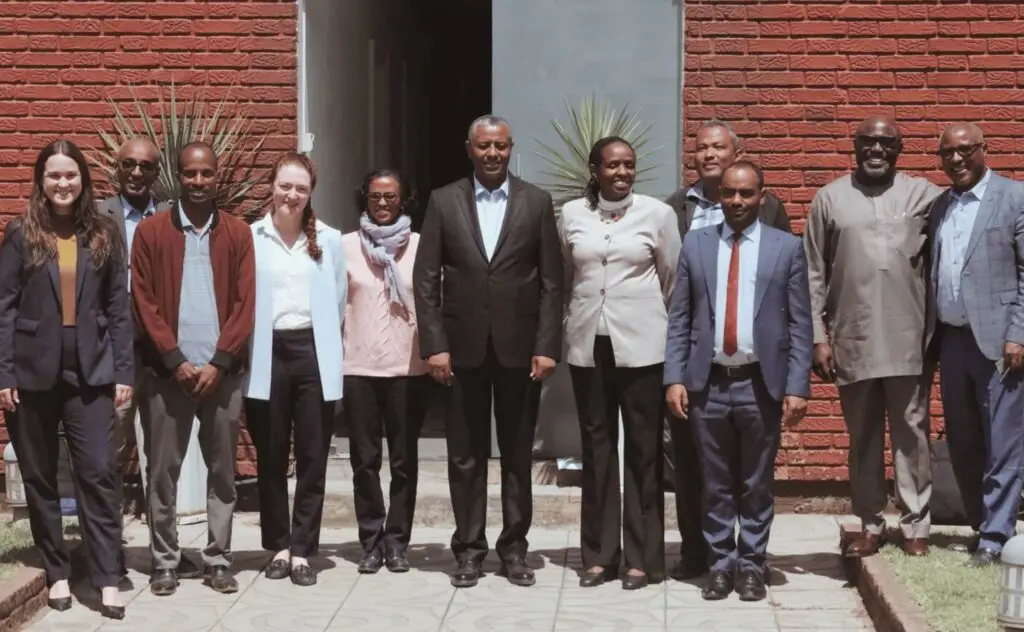
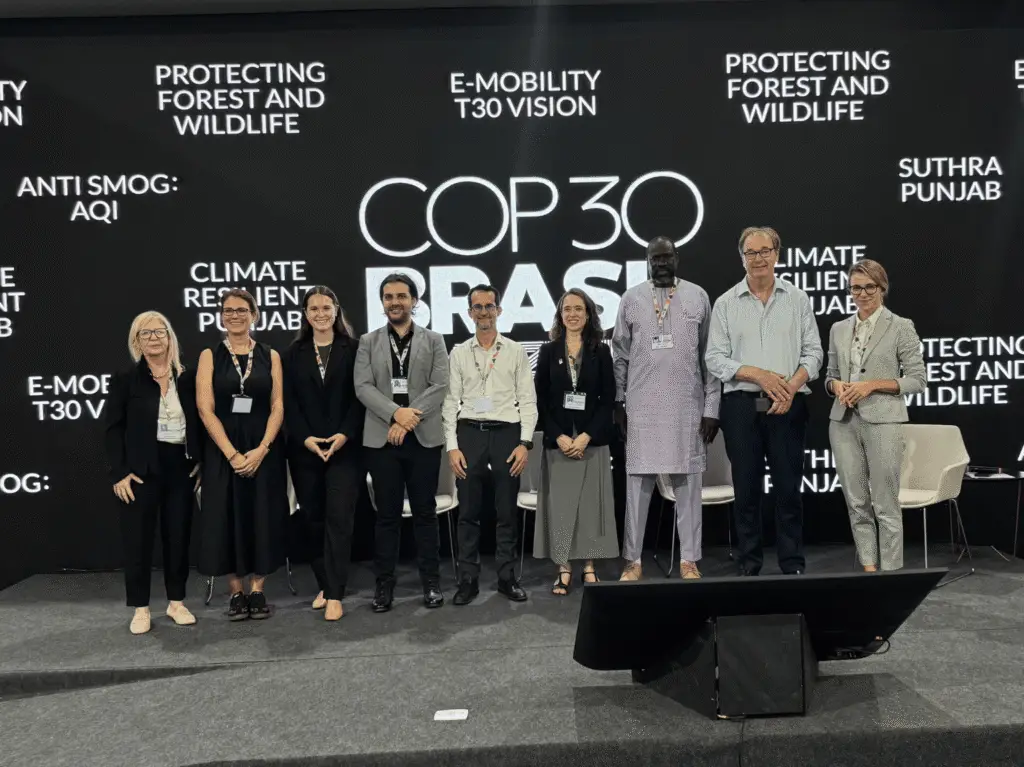
meet the digital advisory services for agriculture technical panel
The Digital Advisory Services for Agriculture Technical Panel is made up of subject matter experts, including academics who conduct research related to the topic, and implementers—multilateral development banks, non-governmental organizations, and foundations—who work to promote and fund the innovation in the field.
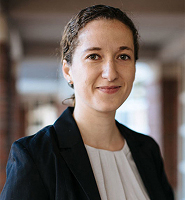
Assistant Professor of Economics at Lyndon B. Johnson School of Public Affairs at the University of Texas at Austin
Raissa Fabregas is an Assistant Professor of Economics at Lyndon B. Johnson School of Public Affairs at the University of Texas at Austin. She is a development economist with broad interests in understanding barriers to human capital accumulation and learning in LMICs, as well as effective scaling of policy solutions. She is particularly interested in questions of external validity, barriers to scaling up programs, and the role of evidence in policymaking. Raissa’s research examines the role of information, incentives, and social factors in shaping individual behavior and economic opportunities. Her work includes studies on the effectiveness of digital agricultural interventions for smallholder farmers, the use of television to expand education in rural communities, and the economic impacts of increased access to mobile money. As part of this work, she has engaged in policy discussions on program implementation with private, public, and NGO partners in Puerto Rico, Mexico, India, Kenya, and other developing countries. Dr. Fabregas holds a PhD in Public Policy from Harvard University.

Dorothy Foehr Huck and J. Lloyd Huck Chair in Global Food Security in the Department of Entomology at Penn State University
David P. Hughes, is the Dorothy Foehr Huck and J. Lloyd Huck Chair in Global Food Security in the Department of Entomology at Penn State University. His research focuses on food security and the manipulation of host behavior by parasites. He developed a model system using the ‘death grip’ of fungus-infected ants to study this phenomenon, exploring the genomics and transcriptomics of behavioral manipulation.
David has conducted field work in Brazil, USA, and China, and collaborates with Dr. Harry Evans of CABI, UK, and local scientists internationally. He also studies agricultural diseases, particularly those related to ants on farms in Ghana. He created “PlantVillage,” an AI-powered mobile platform that serves as a “digital extension service” for farmers. As a mid-career professor, Hughes uses smartphones, machine learning and cloud computing to help millions of farmers diagnose plant diseases and adapt to climate threatsDr. Hughes holds a DPhil in Entomology from the University of Oxford (2003) and a BSc (Hons) in Zoology from the University of Glasgow (1999).
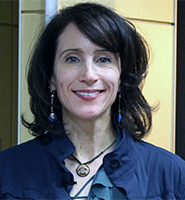
Daniel G. Sisler Professor of Development Economics at Cornell University
Jenny Aker, the Daniel G. Sisler Professor of Development Economics at Cornell University, is the 2017 recipient of the Fletcher School Research Prize and the 2015 recipient of the Fletcher School Paddock Teaching Award. She co-chairs the Digital Identification and Finance Initiative in Africa Initiative at J-PAL Africa, based at the University of Cape Town. Her research centers on economic development in Africa, particularly the impact of information and information technology on development outcomes. Her work also contributes to areas such as agricultural markets, adult education, financial inclusion, agricultural technology adoption, and social protection mechanisms. Jenny has conducted field work in numerous countries, including Benin, Burkina Faso, Burundi, Chad, DRC, The Gambia, Ghana, Guinea, Kenya, Liberia, Mali, Mozambique, Niger, Nigeria, Rwanda, Senegal, Sierra Leone, South Sudan, Tanzania, Haiti, and Guatemala. Dr. Aker holds a Ph.D. in Agricultural Economics from the University of California-Berkeley.
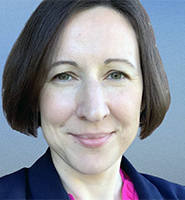
Agriculture Economist, Food and Agriculture Global Practice at the World Bank
Kateryna Schroeder is an Agriculture Economist in the Food and Agriculture Global Practice at the World Bank. Her work focuses on agricultural and trade policy, as well as food security. She also explores the role of digital technologies in addressing market failures within this sector and the necessary public policies to facilitate this process. Prior to joining the World Bank, Kateryna worked as a research scientist at the Food and Agricultural Policy Institute and frequently consulted with the UN FAO on issues related to food security, nutrition, and trade. Kateryna holds a PhD in Agricultural and Applied Economics from the University of Missouri.

Senior Innovation Advisor within the Food and Agriculture Research, Foreign, Commonwealth and Development Office (FCDO)
Mike Reddaway is the Senior Innovation Advisor within the Food and Agriculture Research team in the Foreign, Commonwealth and Development Office (FCDO)’s Research and Evidence Directorate. In this role, he manages a diverse portfolio of agriculture innovations, with a particular focus on digital advisory services and their potential to transform food systems. His work involves identifying, supporting, and scaling promising new technologies and approaches to enhance agricultural productivity and sustainability. Prior to joining the FCDO, Michael held positions at the UK’s central bank and economics and finance ministry, where he gained experience in policy development and economic analysis. He also has experience working in the private sector. Mike holds a Masters in International Relations from the University of Exeter in the UK.

Principal Scientist with the Alliance of Bioversity International & CIAT, Director of AICCRA
Robert Zougmoré works as Principal Scientist with the Alliance of Bioversity International & CIAT where he is the Director of the AICCRA Program (Accelerating-Impacts-of-CGIAR-Climate-Research-for-Africa) as well as the Lead of the Research Department on Climate Action for West and Central Africa. From 2010 to 2021, he was the Africa Program leader of the CGIAR Research Program on Climate Change-Agriculture-and-Food-Security (CCAFS), at ICRISAT Bamako, Mali. This program focused on generating and disseminating knowledge, tools, and innovations to help farmers, pastoralists, and other actors in West Africa. Prior to his current role, he held a senior position within the Environment Program of the Sahara & Sahel Observatory in Tunisia. He has also been a senior researcher and Chief of the Natural Resources Management and farming systems department at the Institute for Environment and Agricultural Research in Burkina Faso. An agronomist and soil scientist, Robert earned his PhD in Production Ecology & Resources Conservation from Wageningen University, The Netherlands.

Senior Program Officer for Digital Agriculture Solutions at the Gates Foundation
Stewart Collis is the Senior Program Officer for Digital Agriculture Solutions at the Gates Foundation. With over 20 years of experience in agricultural information technology, he specializes in digital farmer services, smart farming, and digital agricultural ecosystems in low and middle-income countries in Africa and South Asia. Previously, Stewart was the co-founder and CTO at aWhere, and he contributed to climate-driven spatial crop simulation modeling and ag-data management tools at Texas A&M University and the International Center for Research in Agroforestry. Stewart holds a Masters of Engineering Science in Geomatic Engineering from the University of New South Wales, Sydney, Australia.

Associate Professor of Digital Government, University College London
David Eaves is Associate Professor of Digital Government and Co-Deputy Director of the Institute for Innovation and Public Purpose at University College London. David’s courses focus on the governance of digital public infrastructure and the minimum viable knowledge public administrators need on technology to be effective in a digital era. He is a co-founder of Teaching Public Service in a Digital Age, which seeks to increase the number of public servants receiving digital era public administration skills.
A believer in public entrepreneurship David has helped train numerous cohorts of Code for America fellows, White House Presidential Innovation Fellows and Code for Canada Fellows. He was also co-founder and CEO of ReCollect, a software company used which grew to be adopted by hundreds of municipalities to help encourage recycling and better manage their waste streams before being acquired in 2021.
David completed his Masters of Philosophy in International Relations at Oxford Unviersity, and an undergraduate degree (honors) from Queen’s University in Canada. Prior to joining the IIPP David was a Lecturer of Public Policy at the Harvard Kennedy School from 2016-2021.
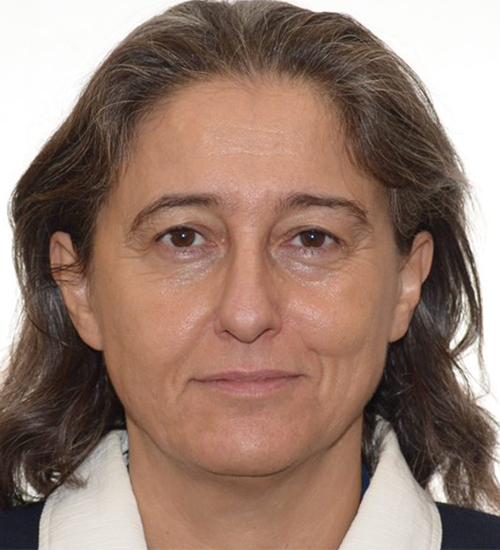
Senior Natural Resources and Agricultural Specialist at the Asian Development Bank
Monica Petri is an agronomist with over 25 years of experience, mainly at the Food and Agriculture Organization (FAO) of the United Nations, as well as the other UN agencies and the CGIAR. She is an expert on land management and rehabilitation and adaptation to climate change at the territorial level. Her work experience spans Latin and Central America, Africa, and Asia. She has long experience in digital agriculture, especially in digital public infrastructures. She recently joined the Asian Development Bank (ADB) in Manila, where she is responsible for the development of Agri Stack in India, for the partnership with AIM for Scale. Monica holds a PhD in Agriculture at the Sant’Anna School of Advanced Studies in Pisa, Italy.
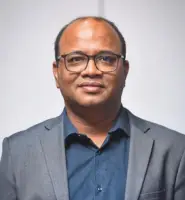
Senior Scientist Alliance of Biodiversity International and CIAT
Ani Ghosh is a senior scientist at the Alliance of Biodiversity International and CIAT in Nairobi, Kenya. He leads a diverse team of young and talented specialists in climate services, modeling, remote sensing, economics, and digital agriculture, developing innovative adaptation solutions and driving investments to transform agricultural practices. Previously Ani was at the University of California, Davis where he developed big data and machine learning analytics tools for agriculture monitoring and crop yield prediction, supporting agricultural index insurance. He coordinated the Geospatial and Farming Systems Research Consortium and organized workshops on spatial data science for agriculture using free and open-source tools. His research covers topics from cropland expansion to climate change impacts on agricultural systems and has been published in Nature Food, Environmental Research Letters, and Remote Sensing of Environment. Ani earned his Ph.D. in Natural Resources Management from TERI University in 2014 and completed a postdoctoral fellowship at Colorado State University, focusing on post-fire vegetation recovery using remote sensing”.
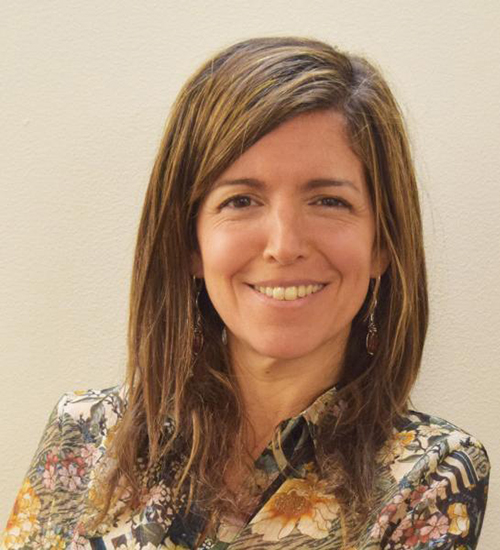
Senior Specialist in Rural Development at the Inter-American Development Bank (IDB)
Romina Ordonez is a Senior Specialist in Rural Development at the Inter-American Development Bank (IDB) based in Chile, where she leads the development and implementation of agriculture and rural development projects in Chile and other countries in Latin America. Her expertise spans the design, supervision, and evaluation of development projects, with a focus on sustainable rural development. Previously, Romina worked as an economist at IDB Invest, concentrating on the agribusiness and tourism sectors. Her work included measuring the development impact of private sector operations, designing and implementing advisory services and impact evaluations. She holds a Ph.D. in Agricultural Economics, a Master in Public Policy, a bachelor’s degree in Economics, and a technical degree in Journalism.